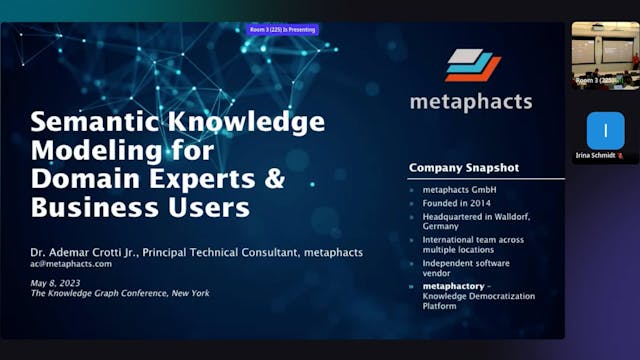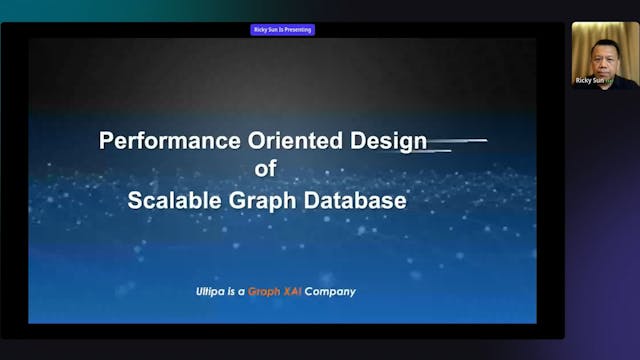Masterclass: Taxonomy-Driven Ontology Design
May 8 | KGC 2023
•
1h 33m
Taxonomies should not be looked at merely as the extension of ontologies downward into subclasses and individuals; taxonomies can also serve as a source of creating ontologies upward. Ontologies are best designed with a combination of top-down and bottom-up approaches. Top-down involves designating classes and then relations, based on such sources as stakeholder interviews, brainstorming workshops, and use case development, along with a survey of existing data/content management systems to identify their information organization schemes and metadata properties. Bottom-up methods help to identify all the ontology properties, both relations and attributes, which would involve examining metadata properties and elements and examining existing taxonomies, The inclusion of existing taxonomies can help define the ontology scope, and relations between classes can more easily be defined with existing concepts in each concept scheme/class. The ontology is then based on actual entities and is based less on hypothetical uses. Increasingly, organizations already have existing taxonomies, which should be leveraged rather than duplicated or replaced.
Up Next in May 8 | KGC 2023
-
Masterclass: Semantic Knowledge Model...
Knowledge Graphs drive modern data fabrics, enabling frictionless access to and sharing of data. They have led to great advances in terms of data integration, interoperability and accessibility, and are a key instrument for transforming data into valuable and actionable knowledge. But while the b...
-
Masterclass: Hands-on Automatic Quali...
This masterclass will empower attendees to identify and detect quality issues in knowledge graphs, with methods inspired from linguistics, statistical modeling, and ontological analysis. By the end of it, they will be able to uncover key quality dimensions, typical causes of low scores in each of...
-
Masterclass: Scalability design in a ...
Having a distributed and scalable graph database system is highly sought after in many enterprise scenarios. This, on the one hand, is heavily influenced by the sustained rising and popularity of big-data processing frameworks, including but not limited to, Hadoop, Spark and NoSQL databases; on t...



